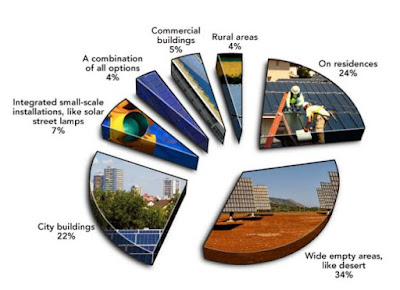Solar panels are used in a wide range of applications around the world. Here are some common uses of solar panels:
Residential Buildings: Solar panels are installed on rooftops or in open spaces of residential buildings to generate electricity for household consumption. Homeowners can use solar energy to power their appliances, lighting, heating, and cooling systems, reducing their reliance on the grid and lowering electricity bills.
Commercial Buildings: Many commercial buildings, including offices, warehouses, and shopping malls, utilize solar panels to generate electricity. Solar power can help businesses reduce operating costs and decrease their carbon footprint.
Solar Farms: Large-scale solar farms consist of numerous solar panels arranged in arrays. These farms are designed to generate electricity on a utility-scale and feed it into the electrical grid, supplying power to communities or industries.
Remote and Off-Grid Areas: Solar panels are used in remote or off-grid areas where it may be challenging or costly to connect to the electrical grid. These areas can include rural communities, islands, mountainous regions, or locations without reliable access to electricity. Solar panels, often combined with energy storage systems, provide a sustainable and independent source of power.
Solar-Powered Streetlights: Solar panels are integrated into streetlights to power them independently. Solar-powered streetlights are energy-efficient and help reduce electricity consumption in public lighting systems.
Transportation: Solar panels are utilized in various transportation applications. Solar-powered vehicles, such as solar cars, boats, and planes, use solar panels to convert sunlight into electricity for propulsion. Additionally, solar panels can be installed on charging stations for electric vehicles, providing renewable energy for recharging the vehicles' batteries.
Water Pumping: Solar-powered water pumps are used in agricultural irrigation, rural water supply systems, and water purification processes. These pumps use solar panels to generate electricity and provide a sustainable solution for pumping water without relying on fossil fuels.
Mobile and Portable Applications: Solar panels are integrated into portable devices like solar chargers, backpacks, and camping gear. These devices allow individuals to harness solar energy to charge their mobile phones, tablets, laptops, and other electronic devices while on the go.
These are just a few examples of the many applications of solar panels. As solar technology continues to advance and become more affordable, we can expect to see even wider adoption of solar panels in various industries and everyday life.
Here is a list of cities and small towns using solar.










